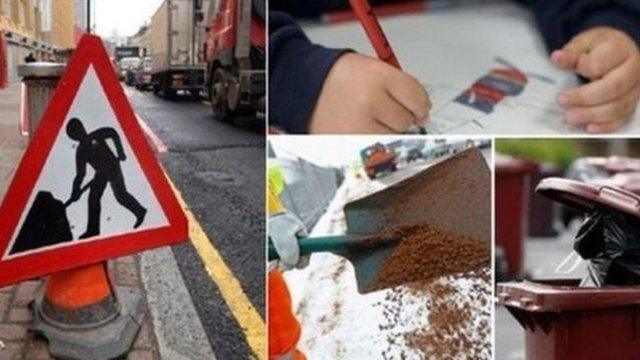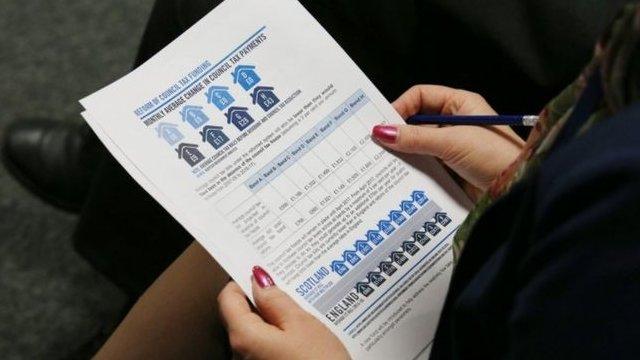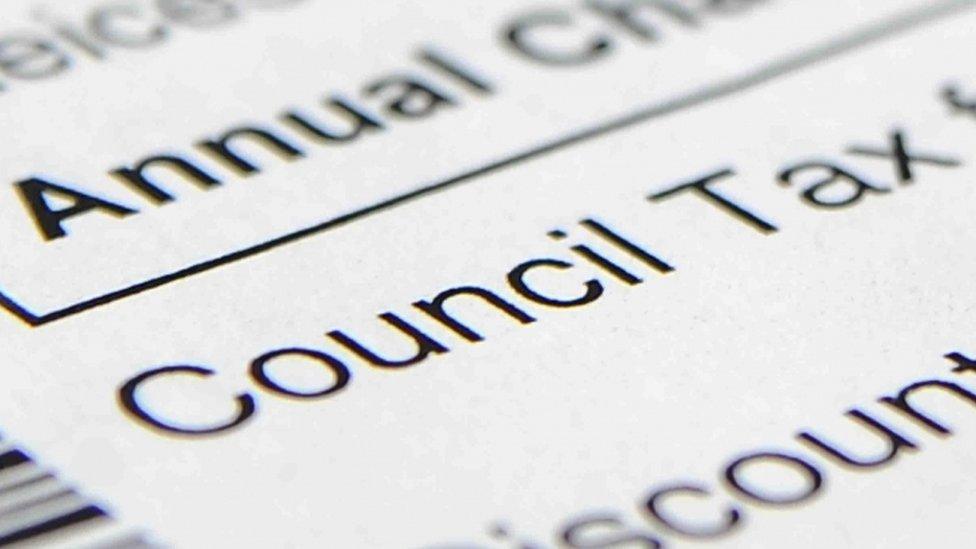Fewer cuts needed, says South Lanarkshire Council leader
- Published

The South Lanarkshire Council leader wants to withdraw a number of proposals for possible cuts in local services.
The Labour-run council still expects to have to make £19m worth of cuts and close 220 posts in the coming year.
Council leader Eddie McAvoy says some proposed cuts will not be needed now as the government is giving it more money than originally intended.
On Tuesday two councils agreed to put up the council tax for the first time since 2007.
The council leader's statement comes as councils across Scotland contemplate their budgets and possible council tax rises.
On Tuesday Comhairle nan Eilean Siar (Western Isles Council) and Midlothian Council agreed to 3% rises in the basic level of council tax. Edinburgh, Aberdeenshire, Borders and East Renfrewshire will discuss what to do on Thursday.
So far, South Lanarkshire is the only council to explicitly rule out a rise although many have not set out a public position so far.
The authority believes an increase would do little to mitigate the cuts it faces but that a further freeze would help family budgets.

South Lanarkshire Council said the figure of 220 post closures was 60 lower than the number originally anticipated.
South Lanarkshire has a policy of avoiding compulsory redundancies. For the most part, councils across Scotland have cut jobs by voluntary means and by not filling vacancies. Efforts are also made to redeploy people whose current posts are earmarked for closure.
A decision on formally dropping some of the proposed cuts will be made at a meeting of the council's executive committee later. The council will decide on what cuts and savings to actually make when it sets its budget later this month.
The savings options the leaders wants to be withdrawn include:
Reductions in funding for Youth Learning
The removal of the Mobile Créche Service
A reduction in the number of school librarians
The introduction of "shared" janitors between schools
Mr McAvoy said he was proposing to take some options for cuts off the table because the Scottish government was giving councils £160m more than originally planned. The government agreed to do this in return for support from the Scottish Greens for its budget.
But he stressed the council was still facing big cuts.
'Tough decisions'
He said: "Even though the government has now reduced the scale of its cut to local government funding, the council still has to make £19m of cuts to balance our budget.
"Unfortunately that means that we will still have to make some tough decisions as we set the budget for the next financial year. As a result, some of our services will still be affected and we will lose more than 220 council posts.
"However, we are now in a position where we can look again at some of the savings proposals that we were originally forced to consider.
"Many of the changes that I am proposing are in social work and education, so if they are accepted it would have a very positive impact on the services we provide for the elderly, the young and the vulnerable."
Generally, the council tax only accounts for about 15% of a council's budget.
A 3% rise might only make a modest contribution to a council's budget - Western Isles said a 3% rise plus changes to bands, which will mean people in Bands E-H across Scotland paying more, would raise just over £500,000.
However, any council which puts up the council tax by less than 3% and makes cuts may leave itself open to claims that it could have increased the tax to try to mitigate the cuts.

When is your council tax due to be set?
7 February - Western Isles, Midlothian
9 February - Edinburgh, Borders, East Renfrewshire, Aberdeenshire
15 February - Moray, Shetland
16 February - Highland, Renfrewshire, Inverclyde, Angus, Fife
21 February - East Lothian
22 February - West Dunbartonshire, Aberdeen, Falkirk, Perth and Kinross, Orkney
23 February - East Dunbartonshire, East Ayrshire, Stirling, Argyll and Bute, Dundee
28 February - Dumfries and Galloway
1 March - North Ayrshire
2 March - South Ayrshire
TBC - South Lanarkshire, West Lothian, Clackmannanshire, North Lanarkshire, Glasgow
- Published7 February 2017
